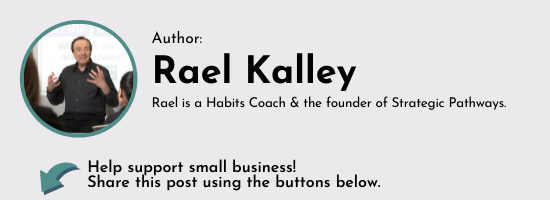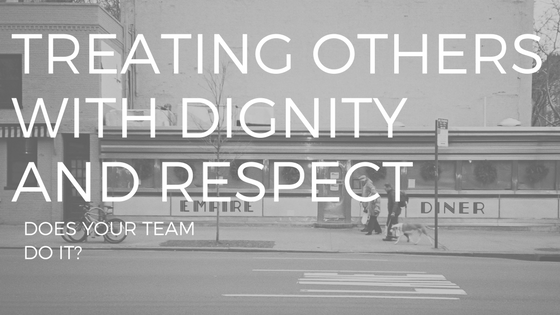Customer Success: How Does Your Team Treat Your Clients?
We’ve been talking about bad customer service. We discussed the importance of taking ownership of mistakes, the importance of rectifying them and then over delivering on promised results. But what about those who treat customer service workers badly?
Here’s the other side of the customer service story, treating others with dignity and respect. When you’re building your team, do you look for people who treat those offering services with kindness?
Last week I met a friend for a long, overdue coffee. Unfortunately, our precious time was not taken up with pleasant conversation and eagerly learning what we had both been up to in the past 6 months. No, the conversation was consumed with my friend ranting about how rude some of the customers were to the barista.
I heard in great detail about two groups of customers who were extraordinarily rude and dismissive to the young lady behind the counter.
We have all witnessed – and perhaps been guilty of – the ill-treatment of people attempting to provide service to us or to help us in addressing a problem. Listening to her recounting these events reminded me of how one of my favourite clients hired senior executives for his many companies.
The Path to Success
He owned a diner in an industrial part of the city. He had worked there for many years when he first arrived in Canada, struggling to learn English.
By the time I met him, he was an enormously successful entrepreneur. He employed several thousand people and owned numerous companies across Canada, including that diner.
While the diner was still open to the public, it was also a place where his employees and friends could meet and enjoy a good meal, and simply sign a chit when they were finished.
It was also the final step in the interview process for would-be senior executives in his company.
Once potential applicants had been green lit through all the various interviewing stages, they would be invited to join him for lunch at the diner.
Unbeknownst to them, they were being evaluated not only by their potential future boss but also by the restaurant staff.
They were being tested not on their ability to do the job for which they were applying, but on how they treated the staff who worked in this dingy diner.
Were they polite? Did they say “please” when requesting something, and “thank you” when receiving it?
How did they conduct themselves when trying to gain the attention of their server?
My client had a belief that if applicants treated staff in his restaurant with disdain, disrespect or complete disregard, it was also an indication of how they would treat their subordinates and customers.
Dignity and Respect
Those who were polite, respectful and friendly, received job offers. Those who weren’t never knew why they were turned down for a highly desirable job. It came down to treating others with dignity and respect.
As somebody who began his new life in this country by working in the service industry, this man knew what it was like to be treated rudely, disrespected regularly, and viewed as “lesser than” by many.
He also knew the feelings of hopelessness that accompany the need to keep the job, and therefore the requirement to just “suck it up” when treated poorly.
This man built an empire by putting other people first, by placing respect above results, and pride above profits.
He proved that it could be done. When he passed away several years ago, he left a legacy so many could benefit from, and yet so few do.
Being in the service industry is not always easy, but we can all help make the lives of those we encounter a little better by treating others with dignity and respect.
We could make a strong argument that regardless of what we do, we are all in the service business. We all serve a client of some kind, which means we all want to be treated kindly.
The cost of saying please and thank you is absolutely nothing and, what I learned from this wonderful man is that the cost of failing to do so can easily be the loss of a plum job.
More importantly, it’s an offer of dignity to the person on the other side of the counter.
Till we read again.
p.s.
If you’ve arrived at my blog via social media, or a Google search, welcome!
If you like what you read, I hope you’ll consider being part of my tribe by subscribing.
Everyone who joins gets a copy of my free 5-step weight loss guide
I take email privacy very seriously, and never share or sell addresses.


